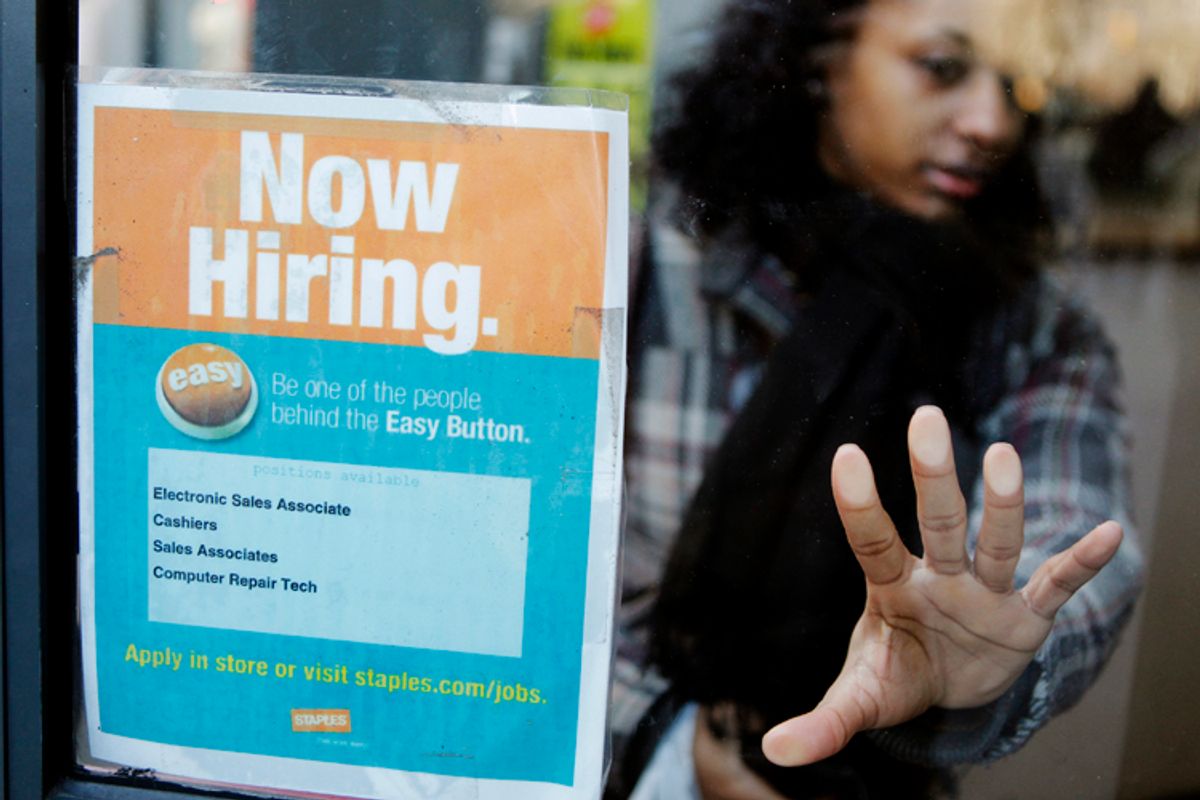After a long summer in which almost every new economic indicator seemed to report more distressing data than the last, September is closing with a quirk.
On Wednesday, surprisingly good numbers on durable goods spending encouraged both JP Morgan and Macroeconomic Advisers to upgrade their predictions of GDP growth for the current (third) quarter. Then, on Thursday, the Bureau of Economic Analysis announced that its final estimate for second quarter economic growth came in at 1.3 percent, or .3 percent higher than its last guess, while the Department of Labor reported that weekly jobless claims dropped sharply -- to their lowest level since April.
There may be technical factors confusing the weekly claims data, and by any measure the pace of economic growth is still painfully slow. And another bad number delivered in next week's government jobs report will surely trump these slight upticks, and of course, events in Europe could still easily throw a wrench into the workings of the entire global economy.
But it's still at least mildly encouraging to note that the economy has, for the moment, stopped sliding backwards. A month ago, a relapse into recession seemed more likely every day. Today, a little less so.



Shares